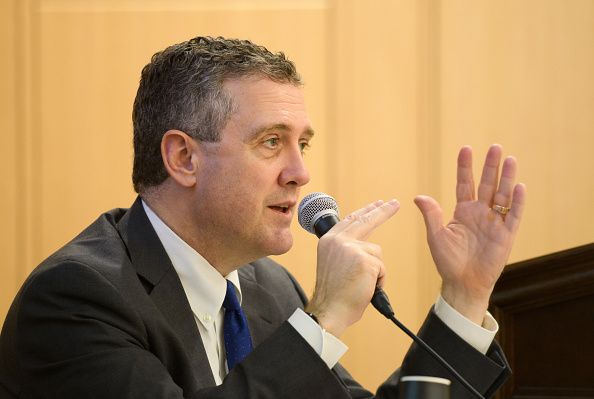(Bloomberg) -- Federal Reserve Bank of St. Louis President James Bullard said U.S. policy makers are facing too-low rates of inflation and the risk of a greater-than-expected slowdown, suggesting he’d favor an additional interest rate cut as insurance.
Rising risks to growth “may make it more difficult for the Federal Open Market Committee to achieve its 2% inflation target,” Bullard said in remarks prepared for delivery at Bloomberg’s monetary and financial policy conference Tuesday in London.
Bullard said it was an open question whether the central bank will cut rates later this month. Fed officials who have cut interest rates at their past two meetings are debating when to stop easing policy, according to minutes of the past meeting released last week.
“The FOMC may choose to provide additional accommodation going forward, but decisions will be made on a meeting-by-meeting basis,” he said.
Investors expect the Federal Open Market Committee to lower rates by another quarter percentage point at its upcoming Oct. 29-30 meeting, though Chairman Jerome Powell hasn’t given a firm signal that it will act.
Bullard, who has been among the most dovish participants on the FOMC, dissented from the quarter-point cut in September, favoring a larger half-point move. The St. Louis Fed chief has argued for several years that persistently lower growth has moved interest rates into a new low-inflation regime where low rates are appropriate.
The U.S. economy grew at a 2.5% rate last year, but is slowing this year and risks a sharp slowdown, the St. Louis Fed official said. Risks include slowing global growth, uncertainty over trade policy, contraction in U.S. and global manufacturing, and slowing business investment, Bullard said.
In addition, a recent inversion in the Treasury yield curve -- meaning short-term rates are higher than long-term rates -- is a warning signal for a slowdown or recession, “which seems to suggest U.S. monetary policy may be too restrictive for the current environment,” he said.
Bullard said he was particularly concerned about inflation and inflation expectations running too low, adding a principal goal of “insurance rate cuts” is to “help re-center inflation and inflation expectations at the 2% target sooner than otherwise.”
Powell said last week the U.S. economy was in “a good place,’’ though the 10-year-old expansion faces continuing risks from businesses hesitant to invest amid a slowing global economy and turmoil over trade policy.
